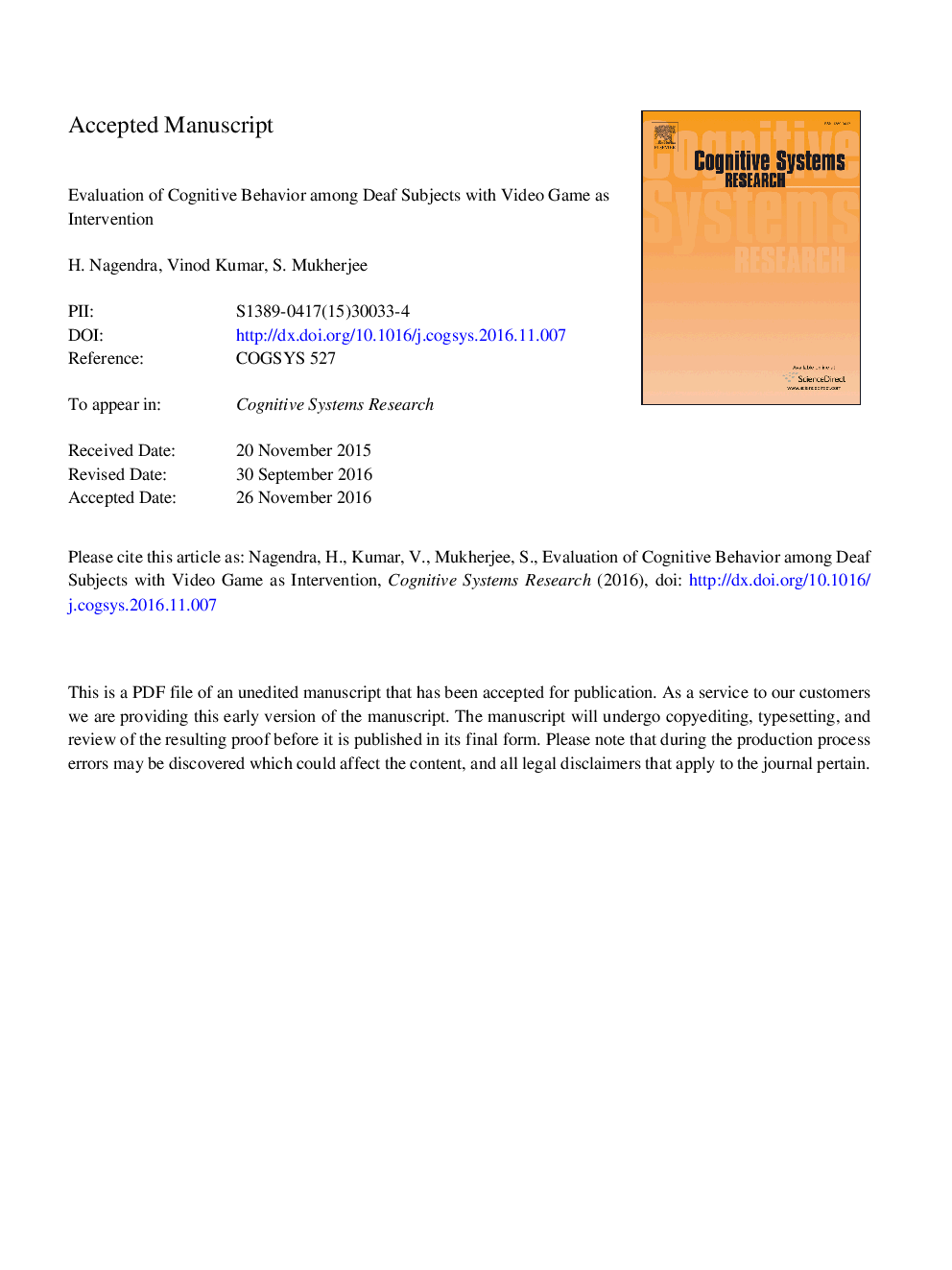| Article ID | Journal | Published Year | Pages | File Type |
|---|---|---|---|---|
| 4942336 | Cognitive Systems Research | 2017 | 21 Pages |
Abstract
Previous research on video gaming mainly focused on negative impact on users. In this study, the positive impact of action video gaming among congenitally deaf subjects is investigated. Subjects possessed high level of visual information processing capacity. A 96 h of action video game play resulted in the improvement of mean reaction time (mRT) (post = 413.21 ms, pre = 453.39 ms) and certain cognitive functions. Higher heart rate variability (HRV) subjects demonstrated faster and significant improvement in mRT (p < 0.0045) after intervention. The α and β EEG band powers were found increased in parietal (6.33%, 4.28%) and occipital (8.38%, 38%) lobes respectively. The θ band power increased in frontal (32%) and parietal (13%) lobes. These results can reflect enhancement in certain cognitive performances such as visual perception, attention, memory, and motor skills. The ratio index β/(α + θ) increased in frontal and occipital lobes while β/θ increased in frontal and temporal lobes. These results may also suggest improvements in attention processing capacity and neural activity. These results implies improvements in certain aspects of cognition among deaf subjects. However, to validate these results a further study on larger number of samples with advanced computerized cognitive battery testing can be employed.
Related Topics
Physical Sciences and Engineering
Computer Science
Artificial Intelligence
Authors
H. Nagendra, Vinod Kumar, S. Mukherjee,
